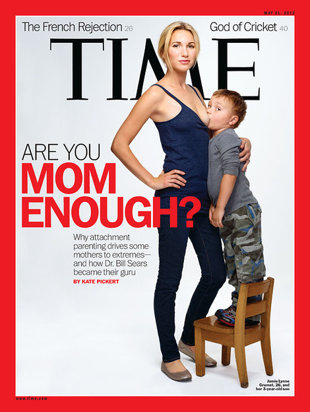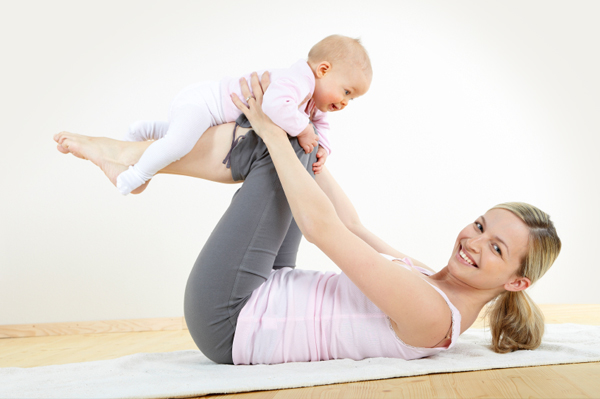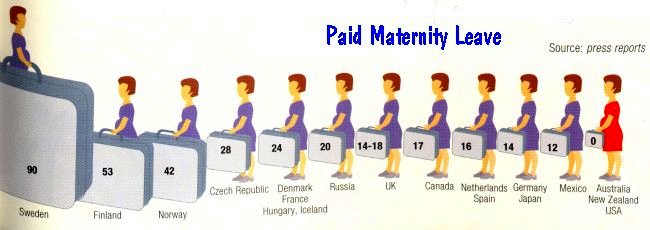 A Mother’s
Ideal Workplace
A Mother’s
Ideal Workplace
It could be an issue handling your career as a professional and been a mother. There are
careers that demand more of you than others, as well as workplaces. If you want
to succeed as a mom, you’ll need to set aside, for at least 5 years, a growing
career. Remember that what you invest in your child is what you’ll harvest in
the future. Not spending enough time with your baby or toddler IS going to
affect emotionally, socially, and even intellectually your child. There’s no
better stimulator than a mother.
Make sure
your workplace is close to home. In case of having your toddler in a day-care,
make sure is also close to home and work. If baby stays with someone at home,
you can teach the person how to be an “attached” caregiver by telling her not
to “let cry” your baby and by holding him in a sling if he doesn’t crawl yet. Having
your workplace close to your child is a way to spend more time with him, since
you are not spending precious time in traffic. Also you’re close to attend any
issue your child might have.
The
workplace should be also “mom friendly”. Panamanian laws are clear that mothers
have the right to bump breastmilk or breastfeed their children for an hour. Make
sure there’re laws that support breastfeeding at work in your country. If not,
find a way to negotiate part of your lunch time to breastfeed (that’s why
living near work is ideal) or to bump. Babies should be a priority in all matters
to a society; including the fact that breastmilk is the most important and best
source of nutrition for them.
If you have
the chance (economically) to go for a part-time job, do it. You can also find
the possibility of working at home. All the time available for your child, take
it. Set aside some lifestyle that takes money and precious time with your baby,
and you’ll see you can live with much less, giving more to your child. Working
extra for more money will make you “richer” but not a successful mother.
Remember money comes and goes, but time that you lost with your child will
never come back.
How I’ve
Manage It
I’m a
pre-school teacher, but I work full time. I found the teaching career wonderful
while been a mother. My house is 5-11 min (depending on traffic) from work. My
older child’s day care is in the middle between work and home (walking distance
from both). Location, location, location…
I managed
to have my babies at the end of the school year (vacation and my baby-leave all
in one). I left my children with 3 months before going back to work, instead of
the 1 and a half month most working moms have to.
A breastmilk bank was an important thing to me. I managed to have at least 150
bags and bottles in my freezer. How I did it? Well I bumped since day one I got
home from the hospital. The first month after giving birth is the time when
your body regulates the amount of milk you’ll have for the next months or
years. So I managed to have a stable milk production. I made sure to buy a great
bumper (Medela) that included a cooler to preserve the milk. I always bump and
breastfeed my children as soon as I come back from work, although they are
drinking much less.
Teaching is
also a great plus, since vacations are in time with your kid’s. Also you have the same
schedule, so you can always pick up your children or be at home on time with
them.
My rule is to never take work to home. I manage my time at work to finish all of it. I also stopped tutoring since the birth of my first child. Time with my children has more value than the salary I made from extra work.
My rule is to never take work to home. I manage my time at work to finish all of it. I also stopped tutoring since the birth of my first child. Time with my children has more value than the salary I made from extra work.
When my
second child wasn’t a crawler, as soon I came from work I put him a ring sling.
I played with my toddler while sharing warmth with my baby tugged in the sling.
Today I just play with both of them on the floor and manage all what have to do
with them with the help of my husband.
There’re
ways to handle work and motherhood, but if you want to be an “attached” parent
and be a professional on your child, you need to focus on been a parent, on
giving more of yourself rather than giving everything to your child. Never
forget that when you become a parent, that’s what you are and you’ll be for the
rest of your life. 




















